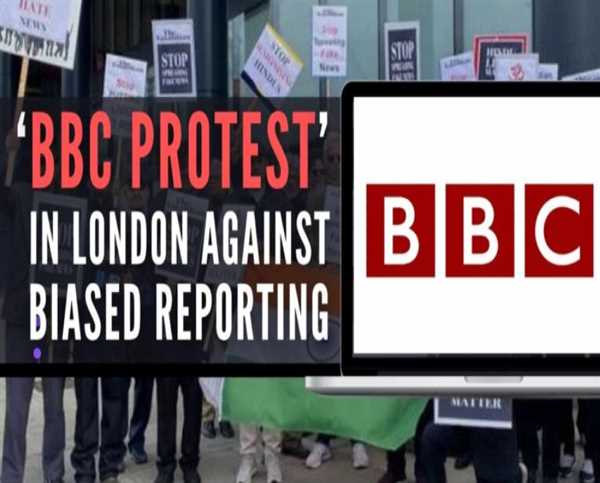The British Broadcasting Corporation (BBC) has a long and complex history of reporting on India and its people. Unfortunately, it has sometimes been accused of being biased against India and its citizens. The BBC is one of the oldest and most influential broadcasters in the world, and its coverage of India and its people is often seen as having a negative impact.
The allegations of anti-India bias stem largely from the fact that the BBC has tended to focus on covering negative stories about India, such as poverty, human rights abuses, and political instability. It has also been accused of giving more coverage to events in other countries than to those in India.
The BBC's coverage of India has often been criticized for being biased. This is particularly true of the coverage of the Kashmir conflict, where the BBC has been accused of giving a one-sided perspective. The BBC has also been accused of focusing too much on the Indian government's actions and not enough on the plight of the people living in the region. In addition, the BBC's coverage of India has been seen as biased in the sense that it tends to focus on the problems India faces rather than the positive aspects of the country.
The BBC has also been accused of being overly critical of India's government and its policies. This criticism has been levelled at the BBC for its reporting on India's economic development, which has been seen as excessively negative by some. The BBC has also been accused of giving too much attention to the political situation in India and not enough to the social and economic issues facing the country.

The BBC has also been criticized for its coverage of the caste system in India, which has been seen as overly negative by some. This criticism has been especially true in regards to the BBC's coverage of the Dalit community, which is the lowest caste in India and is often marginalized and oppressed in the country. The BBC has also been accused of failing to adequately cover the plight of the indigenous people of India, who are often marginalised and overlooked in the country.
Furthermore, the BBC has been accused of having a “western-centric” view of the world and of ignoring important stories about India. For example, some have argued that the BBC has failed to give adequate coverage to the ongoing farmer protests in India and has instead focused on other countries’ protests. The BBC has also been criticised for its lack of diversity, with many accusing it of having a “white-washed” view of India. This has been especially true in its coverage of the Indian diaspora, with many criticising the broadcaster for having a narrow view of Indian culture and people.
Overall, while the BBC has provided some important and informative coverage of India and its people, it has been accused of having an anti-India bias in its reporting. This is particularly true of its coverage of the Kashmir conflict, where it has been seen as overly negative and one-sided. The BBC has also been accused of focusing too much on the political situation in India and not enough on the social and economic issues facing the country. Finally, the BBC has been criticized for its coverage of the caste system in India and for its failure to adequately cover the plight of the indigenous people of India.